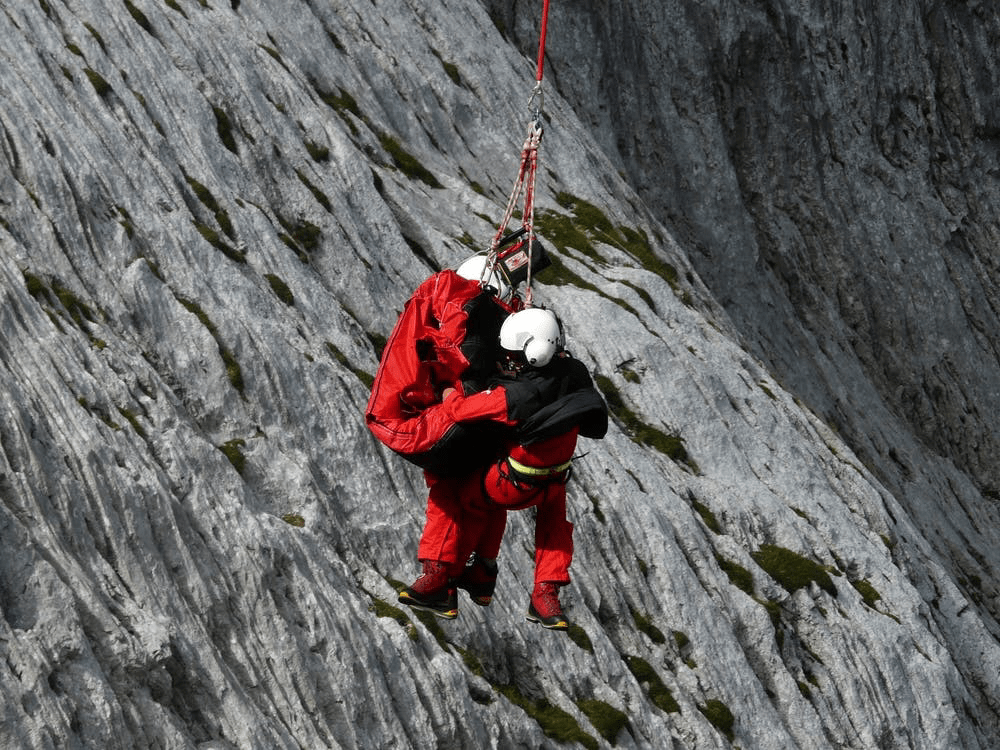B2 listening about the rescue
فایل صوتی درباره ی گروه نجات سطح پیشرفته


You will hear part of a radio interview with Paul Murphy, a member of IRC, the International Rescue Corps. For questions 1-10, complete the sentences.
P: One of the founder members of the organization lived near me in the East of England. He helped set up the IRC way back in 1981 after the Italian earthquake. He was a friend of mine but also a fellow fire-fighter. I joined because I've got a skill to offer, and I thought it would be exciting to travel all over the world rescuing people.
I: And how many missions have you been on?
P: Eight abroad-seven earthquakes and a hurricane - and about 10 in the UK. Er, in this country we're often called upon to find missing people, especially in bad weather. Er, if a disaster strikes a foreign country, er, we sometimes make offers of help to the government there via the British Embassy, but more often than not the country goes to the United Nations and er, asks for rescue teams like ours.
I: And what can IRC offer that other agencies can't?
P: Er, as well as being able to offer our services free of charge, er, we carry our own specialist equipment for finding and saving people who are trapped in collapsed buildings. That includes fiber optic probes, er, where we can put a camera into the smallest of holes to see what's happening, microphones to pick up voices or vibrations and er, thermal imaging to detect heat.
I: Who pays for you to go?
P: IRC is a charity, and none of our members receives any kind of payment. They're volunteers, so they also have to ask for time of work to go abroad.
I: What's the worst weather you've worked in, Paul?
P: Armenia was freezing cold but Nicaragua was bad because of the heat and mosquitoes, which never stopped biting. And the rain was horrendous, too. When we got there the hurricane had been reclassified as a tropical storm, but we had to suffer torrential rain all the time we were there.
l: What's the most amazing survival story you have come across?
P: I suppose it has to be the time we went to Japan after the Kobe earthquake. Er, one woman had been trapped for over 40 hours when we discovered she was there, and it look us another four hours to get her out. The remarkable thing about that is that normally, once people have been trapped for 24 hours after an earthquake, not many come out alive. The thing which saved her was a wardrobe, which had fallen on top of her and protected her from the falling debris. She was partly inside it. And I remember the first thing she said when we finally got her out was that she was bored! Not the kind of emotion you'd expect from an earthquake victim, is it?
I: Certainly not! And what advice would you give to people if they get caught in an earthquake?
P: As soon as you feel the slightest shake, get out of the building and into the open air. That's often easier said than done, of course, especially if you're on the tenth floor when it happens. Um, if it's not possible to get out, then you should take cover in the safest area of the building to stop other things falling on you. But really, it's up to the governments of countries in earthquake zones to take the initiative and construct safer buildings. In this way damage is minimized and er, lives are saved.
I: Thank you, Paul, and the best of luck on your future missions.
Paul Murphy worked with a founder member of the IRC as
In the United Kingdom, the JRC is frequently asked to
A disaster-struck country usually asks for help from the
Unlike other rescue agencies, the IRC has ils own
All of the members of the IRC are
Apart from the heat, the main problems for Paul in Nicaragua were the and
The rescue of the woman in Japan took
The woman owed her survival to a
She said she fell
In order lo prevent loss of life in earthquakes, Paul says that governments should construct
برای دسترسی به دروس بیشتر به لینک زیر مراجعه کنید.
لغات زبان انگلیسی به تفکیک موضوع
درک مطلب از سطح مبتدی تا پیشرفته
تمامی موضوعات آیلتس اسپیکینگ پارت یک، دو و سه همراه با جواب


